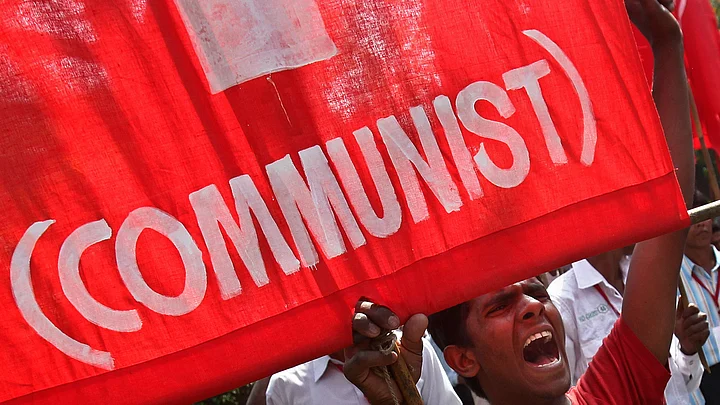In 2005, the communists had just one seat in the Bihar Assembly. This time six Left parties decided to form their own gathbandhan and on the face of it, they were rewarded.
Their tally has trebled despite the Mahagathbandhan (JDU+RJD+Congress) wave that laid waste to the NDA, Asaduddin Owaisi’s AIMIM and Mulayam Singh, the NCP and Pappu Yadav. The Left, with its three seats has as many as Jitan Ram Manjhi and Ram Vilas Paswan combined.
However, all three seats were won by the CPI(ML) Liberation, and for the traditionally strong CPI and CPI(M), the result may not bode well.
Within the Left, Rivalries are Bitter Too
For most of us, communists are painted with the same brush. But among the red parties, there are hues and shades that have been the source of ideological, sectarian divides and even spurts of intense violence.
The differences between the communist parties go back a long way. They disagree over how to interpret India’s independence in 1947, relationships with other communist countries and to what degree to engage with the democratic process in the country.
Among the parties that contest elections (the Maoists or Naxals do not), the CPI(ML) Liberation is among the most radical. They are a ‘mass front’ for the Naxals, and enjoy a close relationship with them.
This time in Bihar, the CPI(ML) Liberation have emerged as the most successful left party in a free and fair election. And they are the party with the least faith in the democratic system.
Was it an Anti-NDA Vote? Likely Not
The ultra-left communists beat the NDA in all three seats that they won. In Tarari in Banka district, the margin of victory for Sudama Prasad of the CPI (ML) Liberation was just 289 votes, the smallest in Bihar. In this reserved seat, the communist hopeful beat the Lok Janashakti Party candidate but in both the other cases it was the BJP, the runner-up, that was defeated by huge margins.
But the wins for the ultra-left force cannot be interpreted as anger against the central government or the BJP.
The CPI (ML) Liberation and the strand of leftism it belongs has a long history and solid organisation in Bihar. Rural parts of the state and neighbouring Jharkhand have been Naxal hotbeds for decades.
The party, referred to as Maale, has strong pockets of support among the poor. Their candidates too have been working in the state for a long time, and some are experienced legislators. Mahboob Alam, who won in Balrampur by a massive margin has been elected to the assembly twice in the past.
In Neighbouring Bengal, Will Left Unity Last?
Now that the Bihar election is over, all eyes are on neighbouring West Bengal which will go to the polls in mid-2016. The BJP is looking to make in-roads into the former CPI(M) bastion, while Sitaram Yechury tries to revive his party to face Mamata Bannerjee.
In Bengal, the Naxals and their fronts were among those who organised the agitations in Nandigram and Singur against the CPI(M). Maale’s success in the Bihar election may embolden the ‘extreme Left’ in Bengal, and encourage them to go it alone.
(At The Quint, we question everything. Play an active role in shaping our journalism by becoming a member today.)
